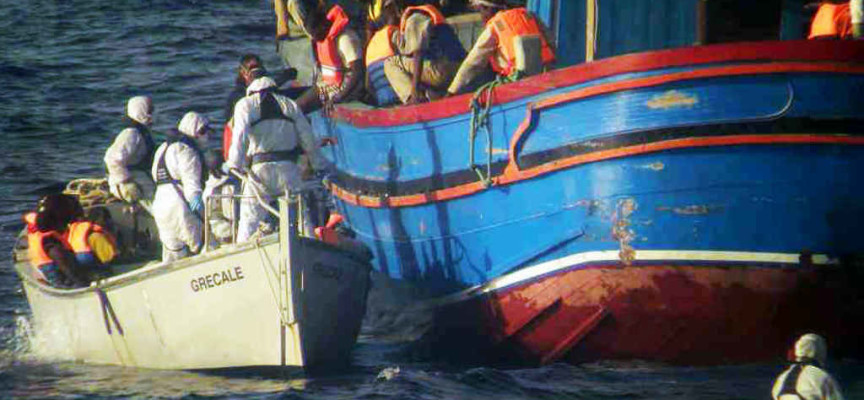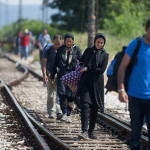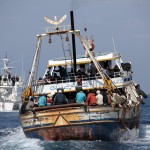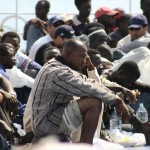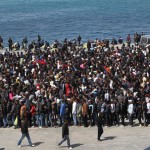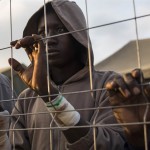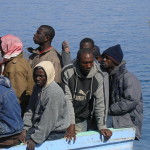The non-assurance of the continuation of the objectives of ‘Mare nostrum’ by the Commissioner, the return to a new Frontex not clear in its objectives, the partial involvement of all European states in the awareness of a dramatic situation of the undergoing migration that calls for effective tools to accompany people on the run, risks to bring the situation of the control of the Mediterranean to October 3rd, with a twofold danger: a return to the prominence of the island of Lampedusa because of the arrival of thousands of migrants, with the inability to manage the reception, but especially the risk of a return to many shipwrecks and deaths, a situation that can only arouse, once again, “shame” to use the words of Pope Francis. As Migrantes Foundation, we hope that the objectives efficiently achieved by the operation ‘Mare nostrum’ can continue, reinforced throughout the Mediterranean with the involvement of European countries. In front of the Ukrainian crisis, as Migrantes we demand that a residence permit for temporary protection can be extended to all family members of the Ukrainians in Italy who request it, so as to prevent the growth of Ukrainian irregular immigration in our country. For Migrantes remains fixed the urgent need that Italy provides itself with an organic and structural plan of first and second reception of asylum seekers and refugees, so as to make plausible every our effort to involve Europe in an extraordinary operation of safeguard of a fundamental right, which is the asylum one.
La non assicurazione della continuazione degli obiettivi di Mare nostrum da parte del Commissario europeo, il ritorno a un nuovo Frontex non chiaro negli obiettivi, il parziale coinvolgimento di tutti gli Stati europei nella consapevolezza di una situazione drammatica di migrazioni in atto che chiede strumenti efficaci per accompagnare persone in fuga, rischia di riportare la situazione del controllo del Mediterraneo al 3 ottobre, con il pericolo duplice: un ritorno di protagonismo dell’isola di Lampedusa per l’arrivo di migliaia di migranti, con l’impossibilità di gestire l’accoglienza, ma soprattutto il rischio di un ritorno a numerosi naufragi e morti: una situazione che non può che suscitare ancora una volta “vergogna”, per usare le parole di papa Francesco. Come Migrantes, auspichiamo che gli obiettivi efficacemente realizzati dall’operazione Mare nostrum possano continuare, rafforzati su tutto il Mediterraneo con il coinvolgimento dei Paesi europei. Di fronte alla crisi ucraina, come Migrantes chiediamo che possa essere esteso a tutti i familiari degli ucraini in Italia che ne facciano richiesta un permesso di soggiorno per protezione temporanea, così da evitare la crescita di un’immigrazione ucraina irregolare nel nostro Paese. Per la Migrantes rimane ferma la necessità urgente che l’Italia si doti di un Piano organico e strutturale di prima e seconda accoglienza dei richiedenti asilo e rifugiati, così da rendere credibile ogni nostro sforzo di coinvolgimento dell’Europa in una straordinaria operazione di salvaguardia di un diritto fondamentale, quale è quello di asilo.
Giancarlo Perego
direttore generale Fondazione Migrantes (Italia) e consultore del Pontificio consiglio per la pastorale dei migranti e degli itineranti
Latest posts by Giancarlo Perego (see all)
- It’s to wake up from sleep - 29 luglio 2015
- Mare Nostrum, the sign and the dream - 1 novembre 2014
- From “Mare nostrum” to Ukraine - 31 agosto 2014

